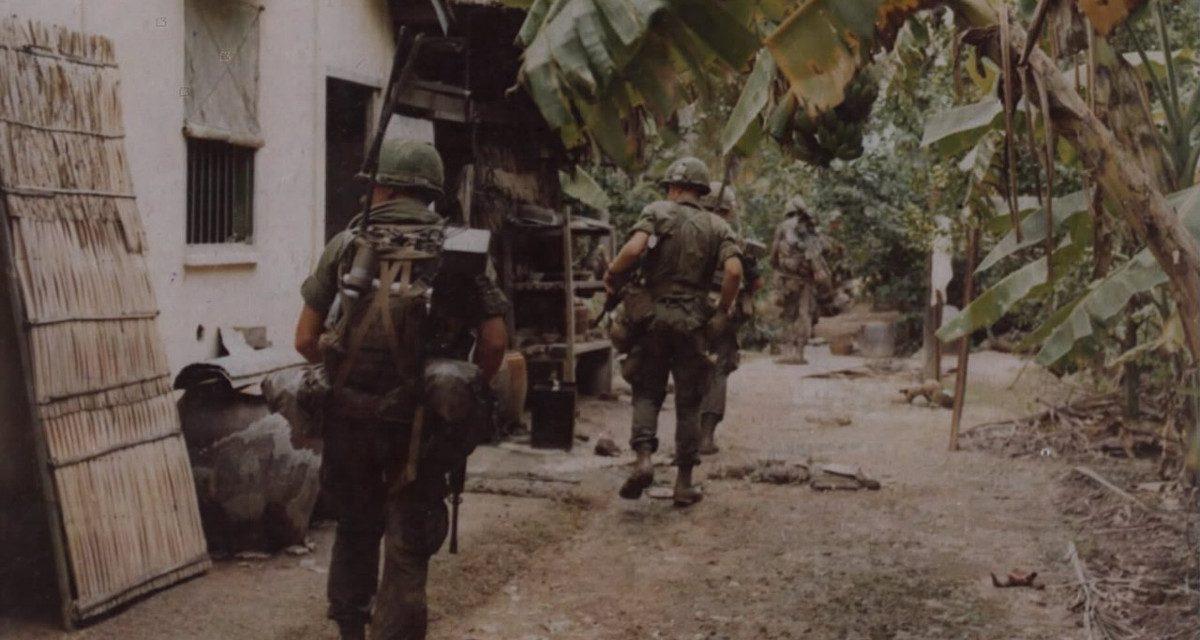Editor’s note: Welcome to another installment of our weekly War Books series! The premise is simple and straightforward. We ask an expert on a particular topic to recommend five books on that topic and tell us what sets each one apart. War Books is a resource for MWI readers who want to learn more about important subjects related to modern war and are looking for books to add to their reading lists.
Fifty years ago this week, an American A-7 Corsair returned to its base in Thailand after bombing a target in Cambodia. It came five months after the departure of US ground troops from Vietnam and was the last direct US military involvement in Indochina. Decades later, the US military would come to regret forgetting many lessons from its years of combat experience during the Vietnam War. Forgotten though those lessons may have been, they are not lost forever. For this installment of War Books, we asked Bob Baker, a Vietnam veteran and author of the book Break in the Chain—Intelligence Ignored: Military Intelligence in Vietnam and Why the Easter Offensive Should Have Turned Out Differently to describe five books that are among those he recommends to readers who want to better understand the US war in Vietnam, its successes, and its failures.
The Lost Mandate of Heaven: The American Betrayal of Ngo Dinh Diem, President of Vietnam , by Geoffrey Shaw (2015)
To understand how and why President Diem was removed by a coterie of anti-Diem Americans in the State Department, aided and abetted by several influential members of the Saigon press corps, one must read this book. It tells the sad tale of what turned out to be one of the biggest mistakes the Americans made during the war.
Phoenix and the Birds of Prey: The CIA’s Secret Campaign to Destroy the Viet Cong, by Mark Moyar (1997)
There are very few good books that tell the true story of the Phoenix Program, but Mark Moyar’s is the best of this very small lot. The Phoenix Program is one of the most misunderstood programs of the Vietnam War, due largely to the propaganda war waged against it by pro-Hanoi supporters in the West and the fact that it was veiled in secrecy (without justification in my opinion). After the war, the communists admitted that the program was highly successful.
Killer Kane: A Marine Long-Range Recon Team Leader in Vietnam, 1967–1968, by Andrew R. Finlayson (2013)
This is clearly the best book about Marine long-range recon teams in Vietnam—it is also so well written and detailed that it should be required reading by teams and patrols in Marine and Army reconnaissance units today. It also reads almost like a how-to book in such things as what to take on a reconnaissance patrol and why, things to do and not do, and more. Finlayson doesn’t hesitate to introduce his team and how valuable each was in completing every mission, nor does he refrain from pointing out the errors he made.
Victory in Vietnam: The Official History of the People’s Army of Vietnam, 1954–1975, translated by Merle L. Pribbenow (2002)
The unvarnished view of the war from the North Vietnamese perspective. Sketchy figures on casualties, but highly accurate information on how they viewed their strategy, operational techniques, training, organization, as well as the weaknesses and strengths of the US and ARVN forces. It also clearly points out the importance of the Ho Chi Minh Trail in determining North Vietnam’s ultimate success.
Hanoi’s War: An International History of the War for Peace in Vietnam, by Lien-Hang T. Nguyen (2012)
This book tells of the political infighting in North Vietnam that went on during the Vietnam War using North Vietnamese sources. If there were any doubts about who launched the Vietnam War, this book, based on archival access and interviews with key North Vietnamese players, should put those doubts to rest.
Bob Baker was the sole intelligence analyst assigned to the only intelligence unit still active in I Corps/First Regional Assistance Command at the onset of the Easter Offensive of 1972 in Vietnam, which his book Break in the Chain—Intelligence Ignored describes. He has written numerous articles for Small Wars Journal, the Military Intelligence Professional Bulletin, the American Intelligence Journal, The Drop, The INTSUM, and The Forge.
The views expressed are those of the author and do not reflect the official position of the United States Military Academy, Department of the Army, or Department of Defense.

